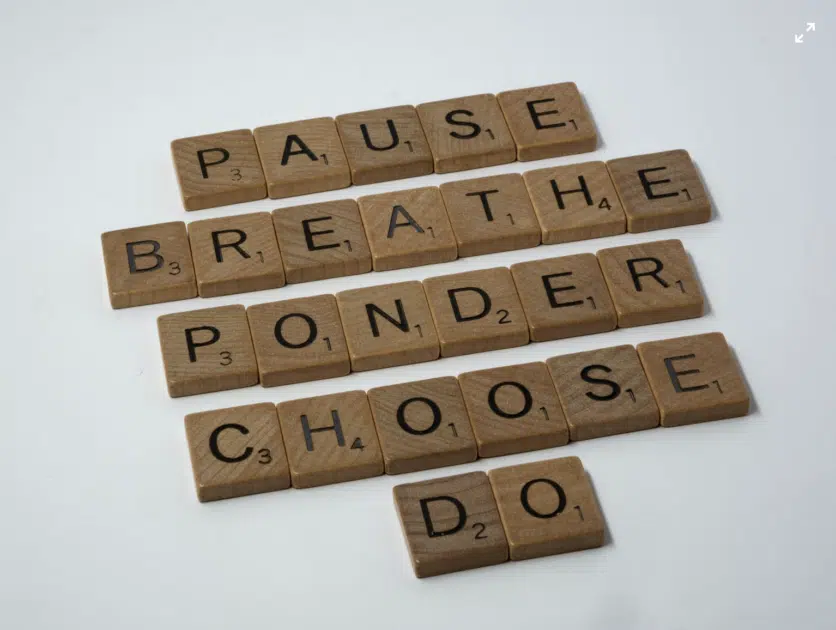
Have you ever had that one friend who doesn’t know how to read the room and always says the most inappropriate things at the most sensitive times like funerals?
I’m sure everyone, at one point in their lives, has encountered someone who has said something that added fuel to the fire or who has made “yo mama” jokes during funerals.
Probably what ran in your head at that time was– “what’s wrong with this person?”
Most probably, these people who can’t read the room or understand social situations have low emotional intelligence. We know what intelligence or IQ is, but what is intelligence in terms of emotions?
What is Emotional Intelligence?

Emotional Intelligence (EI) is an individual’s ability to reasonably understand, manage, and evaluate their own emotions and the emotions of people around them to enhance their own thoughts.
It’s integral for people to be able to communicate and control their own emotions, at the same time understand, interpret, and respond to the emotions of others.
For example, people with high emotional intelligence would be able to read the emotions of people at a funeral and would know not to make any inappropriate jokes.
It’s the ability to understand whether your friend is grieving, enjoying, or being angry.
Since people are inherently social beings who rely on cooperation in order to thrive and survive1, having very little or zero emotional intelligence might isolate you from other people and deprive you of important life opportunities.
How is Emotional Intelligence measured?

I’m sure you have noticed by now in your group of friends that there are certain friends who are more emotionally intelligent than the others; those friends who always know what to say when someone is in distress.
But how can we measure emotional intelligence? Is it even possible?
Yes, it is possible. There is actually a multitude of assessments that have emerged that are used to measure levels of emotional intelligence. These tests fall into two different categories: self-report tests and ability tests.
According to this article, the self-report type of assessment test is mostly used since it’s the most convenient one to administer and score.
Under this type of test, respondents are supposed to rate their own behaviors on different sets of questions and answers.
Ability tests, on the other hand, are run by having respondents respond to situations and then assess their skills. Tests under this category require people to demonstrate their abilities, which are then rated by a third party.
If you are interested to know your level of emotional intelligence, you may try THIS self-report type of assessment.
But if you have the privilege to work with a mental health professional, you may ask them to administer an emotional intelligence test on you.
The two most famous tests used by professionals are the Mayer-Salovey-Caruso Emotional Intelligence Test and the Emotional and Social Competency Inventory.
What are the components of EI?

Serious studies and theories on emotional intelligence are very recent. In fact, theories on it have only been formulated around the 1990s.
According to the Overview of Emotional Intelligence History and Measures of Emotional Intelligence by Kendra Cherry, there are five (5) components to EI.
Notably, these five components were first introduced by famous psychologist Daniel Goleman. These are:
- Self-awareness – This component touches on the capacity to recognize and understand emotions and to have a perception of how one’s actions, moods, and emotions affect others.
It also involves being able to recognize how personal feelings are related to their actions; additionally, it also includes awareness of one’s own personal strengths and limitations.
- Self-regulation – This component heavily relies on the appropriate expression of one’s actions. This component involves the ability to be flexible, cope with change, and manage conflicts.
Self-regulation is also about being able to diffuse conflicts and having the awareness of how one’s actions affect others and the ability to take accountability for these actions.
- Social Skills – This one is the easiest one to understand since it basically refers to interacting well with others; however, socializing is not as simple as it sounds.
It includes applying and understanding our emotions and of others to be able to communicate and interact regularly.
Important social skills are active listening, verbal communication skills, non-verbal communication skills, leadership, and developing rapport.
- Empathy – People often confuse empathy with sympathy. Sympathy is about understanding the emotions of other people through your own perspective, while empathy involves putting yourself in the other person’s shoes in order to understand why they feel those emotions.
Empathy helps a person respond appropriately to other people based on their feelings, and it also enables them to sense power dynamics that are central in any social relationship. - Motivation – When talking about motivation in terms of emotional intelligence, intrinsic motivation is the one considered. Intrinsic motivation is a person’s driving force to meet their own needs and goals.
People driven by intrinsic motivation are usually action-oriented, committed, take initiative, and have a growth mindset.
These five components of emotional intelligence are important in order to have a harmonious relationship with other people.
And if you think you’re lacking or poor in one component, always remember that people can always change as long as we have the will to do so.
Is emotional intelligence more important than IQ?
It’s hard to compare which is more important since people need to use both in their everyday lives.

IQ, a person’s intellectual ability, involves the following:
- use logic to solve problems
- plan and strategize
- understand abstract ideas
- learn and adapt to change
- grasp and use language
A person’s IQ is usually used to make decisions based on sound logic; survive classes in school; do tasks in the office, especially those that involve problem-solving; and plan and strategize actions for the short-term and long-term periods.
EQ, on the other hand, entails the following:
- identify emotions in yourself and others
- empathize with other people
- adapt your feelings and behavior to different situations
- control your impulses
- withstand temptations and delay gratification
- resolve conflicts with others
- communicate effectively
As repeatedly mentioned, EQ is used to understand yourself and others, build meaningful relationships, collaborate with people peacefully, and refrain from getting into conflicts and/or fights.
Obviously, one person cannot live without IQ and EQ; both play a huge role in our lives.
But according to an article published by La Trobe University, higher emotional intelligence makes people more successful, especially in the workplace.
Recruiters are shown to choose people with high EQ (emotional quotient) rather than high IQ since people with high EI usually increase team productivity and staff retention.
How does emotional intelligence affect our day-to-day lives?
It’s hard to survive life without emotional intelligence as it affects every aspect of our lives.
A person’s EI is responsible for managing everyday stress and emotions and connecting with others in order to build sustainable relationships.
Here are the different facets that Emotional Intelligence significantly affects:2

Schoolwork. Sometimes when students are faced with time-pressured examinations, they tend to forget what they have studied due to stress or pressure.
Emotional intelligence helps students who are facing adversities or stress in school with a calm and rational mind.
Additionally, having a high emotional intelligence will help you collaborate with other students for projects and even find true friends that will last a lifetime.

Professional Work. As stated above, emotional intelligence is very helpful in the workplace.
It helps a person navigate the cultural and social complexities of the new working environment; form mutually beneficial bonds with co-workers; motivate other people to do better and reach higher goals; and excel in their field, especially when the field of work involves dealing with other people.
These abilities brought about by having high levels of emotional intelligence are also the formula for being a transformational leader.

Physical health. When people do not have the ability to properly manage stress and other negative emotions, this tends to have an adverse impact on their physical health.
Uncontrolled stress and other negative emotions can raise blood pressure, increase the risk of heart attacks and strokes, and speeds up the aging process among many others.

Mental health. Being able to recognize, regulate, and accept personal emotions are skills that would lead to a positive mental health state.
If you cannot understand and communicate your own emotions and those of others then it will be hard for your to form strong relationships. Consequently, this may lead to social isolation that can tremendously impact your mental health.

Relationships. In any relationship, it’s important to be able to communicate, empathize, and connect with another person, and all of these actions require emotional intelligence.
In order to build a healthy relationship, one should be able to clearly and honestly communicate what they feel, at the same time understand what their partner feels, and be able to support and/or empathize with them.

Leadership. There are a lot of variables that come into play in how people become leaders, one of which is discrimination.
This is why the concept of the glass ceiling exists. But aside from this fact, emotional intelligence is actually one of the key factors why people get recruited and easily climb up the ladder to be leaders.
As stated in a Harvard Business Review Article, “[t]he most effective leaders are all alike in one crucial way: they have all a high degree of what has come to be known as emotional intelligence…My research, along with other studies, clearly shows that emotional intelligence is the sine qua non of leadership.”
How do you spot people with low emotional intelligence?

There really are people with very low emotional intelligence, and, unfortunately, sometimes other people tend to stay away from them or bully them.
There are also other instances when it’s you who has low emotional intelligence and you don’t know what do or don’t have the self-awareness of the problem.
But how can we say when a person has a low emotional intelligence?3
- People with low EI also have very low self-awareness.
These people always find themselves in arguments and are relentless in their stand believing that they are always right.
When provided with facts or given constructive criticism, they have the tendency to not listen to others or defend themselves.
- People with low EI rarely have the ability to distinguish appropriate from inappropriate behavior, which makes them look and/or sound insensitive most of the time.
Since they struggle with reading and understanding other people’s emotions, this also means that it’s hard for them to interpret the emotional atmosphere they are in.
- Their low awareness puts them in sticky situations and their lack of empathy makes them insensitive, so they tend to reject accountability for their actions.
Worse, some even put the blame on other people since they have the tendency to believe that they are always right.
- Because they have a problem with recognizing and communicating their emotions, people with low EI are more likely to hide what they truly feel and carry their baggage without anyone’s help.
Furthermore, they are also prone to avoiding emotional situations at all costs.
- Since they cannot recognize, understand, process, and communicate their emotions, these people are prone to have unpredictable negative reactions to various situations since they cannot understand what they are feeling.
People with low EI can easily be triggered and usually have constant and uncontrollable emotional outbursts.
- Again, emotional intelligence is integral to socialization and forming bonds. Having low EI, which leads to poor social skills, is a recipe for relationship problems and social isolation.
- Some people with low EI have the tendency to hog the spotlight– they want all eyes and ears on them, they want to be the star of every story, and they want to be the hero of all events.
Since they have low self-awareness, they are prone to believe that they are always right and are always better than other people.
Do any of these resonate with you or is there a certain person who popped into your mind while reading all of these? Fear not my friend because we can always take baby steps and improve our emotional intelligence.
How can we improve and develop our emotional intelligence?

Improving and developing your emotional intelligence is still somehow based on the five components of EI. Of course, you cannot just improve in one component; you have to do the hard work to improve in all aspects.
So here are four key skills people need to learn in order to develop, improve, and build emotional intelligence:4
- Self-management – It’s important to note that there are no positive or negative emotions, all emotions are your friends that makeup who you are and help you cope with the daily stressors of life.
One of the biggest issues in self-management is when people are put under pressure or faced with big uncertainties, and people with low EI tend to explode, lash out, or retreat when put into these circumstances.
So in order to manage these negative emotions, we can regularly practice stress management activities, such as walking to decompress to process and simmer down emotions before taking actions (parks, backyard, malls, or even just around the office/school), journaling to express and process emotions, doing yoga or meditation, and other activities that will calm you down and will give you the space to feel, process, and accept your emotions.
It’s important to take a pause before doing any actions since some actions are irreparable.
- Self-awareness – The concept of attachment is crucial in terms of improving self-awareness.
According to a journal on Childhood attachment published in 2007, attachment starts from early childhood and is the enduring emotional closeness that binds families in order to prepare the child for independence and parenthood.
This allows the child to have a safe space necessary to explore, learn, relate, and communicate; it also gives them the well-being, motivation, and opportunity to do so.
According to the researcher, this is a fundamental phase in early childhood for a child to gain safety, stress regulation, adaptability, and resilience.
Knowing that the causal effect of early childhood attachment to emotional intelligence is actually the first step to improving your self-awareness. But if you grew up in a dysfunctional family and missed out on this salient phase, you can still improve and be better.
In order to develop your EI, it’s important to tune in to yourself and tune out the outside world. Regularly practice mindfulness or even meditation to be aware of your body and your feelings.
It’s not easy, but it’s a foolproof solution to it. It is important to note that practicing meditation once won’t magically solve your issues, you have to make it into a routine in order to gain its effects.
- Social awareness – What’s tricky about social awareness is that you have to understand both verbal and non-verbal cues in order to read the person’s emotions.
Once you’ve mastered the art of being aware of your own emotions (maybe through the help of mindfulness), it will be easier for you to understand others’. Practice, practice, practice.
You wouldn’t gain the skill of social awareness without practicing it, and always ask if you’ve read the room wrong or have said something appropriate, If yes, then take that as a learning opportunity to be better.
If not, then go celebrate because you are achieving something! There are also myriads of books on social awareness, non-verbal communication, interpersonal communication, and group communication that can help you understand how to interact appropriately with people.
- Relationship management – Relationship management does not only entail romantic relationships, it can also be relationships in the workplace, school, family, or organizations.
Once you have the ability to recognize, process, and manage your own emotions and have the skills to understand and communicate with others appropriately, you will have better and more resilient relationships with other people.
But of course, having these abilities are only the bare minimum to any relationship; maintaining relationships takes a lot of daily commitment and work.
In order to have a more fulfilling and lasting relationship, you have to be more in tune with your non-verbal cues since it counts for almost 70% of our message; use humor and fun activities to relieve the stress of other negative emotions, and have a growth mindset where you see conflicts as learning opportunities to be a better friend or partner and a way to grow closer to others.
But if you really struggle with relating to others despite doing these things, then it’s always advisable to go to therapy in order to seek assistance and better coping mechanisms.
What is the relationship between mental health and emotional intelligence?

To emphasize, emotional intelligence is a very important aspect of our lives.
Unfortunately, research has shown that there are certain mental health conditions associated with lower levels of emotional intelligence.
These are Borderline Personality Disorder (BPD), Depression, Social Anxiety, and Substance abuse.5
One of the primary mental health conditions that are associated with low levels of emotional intelligence is Asperger’s Syndrome.
It is a development disroder where a person struggles with relating to others socially and their thinking patterns can be rigid and repetitive.
Just like a classic tale of low EI, people with Asperger’s Syndrome have trouble understanding social situations, non-verbal cues, humor, and sarcasm.
People who have Autism Spectrum Disorder suffer from a broad range of difficulties, which is why it’s called a spectrum.
One of the things people in the spectrum grapple with are social skills, repetitive behaviors, and speech and non-verbal communication.
If you think that you are significantly lacking in the components of emotional intelligence, having a hard time connecting and forging bonds with others, or feeling isolated despite your efforts, you may want to seek professional aid for these so they can help you out.
It’s possible to live a meaningful and healthy life despite having these disorders, as long as you seek professional help and work on yourself.
How do members of the LGBT community fare in terms of emotional intelligence?

In a review article entitled “A Review on Emotional Intelligence among Homosexual Community, the authors, Phylicilicia Arsyane Mediana and Siti Aishah Hassan, look at the emotional intelligence of homosexuals through a Freduain Lens.
Freud (1971)6 that each individual has hidden homosexual tendencies, and under certain conditions, these may persist in individual homosexual behavior to adulthood.
The authors also mentioned the two types of homosexuals: those who are in sync with their ego and those who are not.
Given these, the authors concluded that it’s easier for homosexuals to be in sync with their egos to understand since they are freed from the anxiety or conflict with their sexual disorientation.
This makes it easier for them to control their emotions, socialize with others, and empathize with others. On the other hand, homosexuals who are not in sync with their ego struggle with emotional intelligence.
Despite trying to be positive, everything just turns out negative.
But despite being in sync or not in sync with their ego, it’s still harder for LGBT members since they face discrimination in various facets of their lives.
Even if they have high emotional intelligence, homophobic people would try to isolate them, rid them of opportunities in the workplace, demean them, and do other things that make it harder for them to manage and cope with their emotions.























